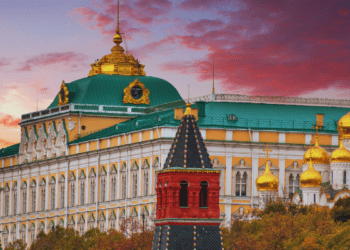Appearing in Postmedia newspapers across Canada, MLI’s Brian Lee Crowley reflects on the true legacy of Margaret Thatcher and the meaning of “Thatcherism”, and why the Liberals need their own Margaret Thatcher now.
Why the Liberals Need a Margaret Thatcher
Brian Lee Crowley, Ottawa Citizen, April 12, 2013
She was a liberal in the classical sense.
Having lived in the United Kingdom for the first half of Margaret Thatcher’s time in office, I saw her handiwork up close, just as I saw the electrifying effect she had on the British people, for both good and ill.
But in all the commentary I have read very few writers have, in my estimation, rightly understood her politics. And no one has mentioned how very relevant the Thatcherite legacy is to the Liberal Party of Canada, whose new leader is about to be chosen.
To begin with, anybody who thinks Margaret Thatcher was a ‘conservative’ mistakes packaging for substance. What were her signature policies: the individualism of middle class aspiration and opportunity; a mistrust of monopoly and unaccountable institutions; free trade; a muscular and moralistic foreign policy; moderate taxes; and responsible public finances.
These are not the policies of British conservatism, which is the party of privilege and class, of deference to established institutions and authority, of paternalism, trimming and compromise. Truth be told, the Tories shared responsibility with Labour for the sad decline of Britain during the years before Thatcher. Long known in British politics as the stupid party, they allowed Labour to generate the ideas, with the Tories simply promising to run things better than the socialists. That produced a rudderless leftward drift.
Thus it was that Margaret Thatcher’s rise to the leadership of the Conservatives was resisted by the party establishment. She wasn’t just a woman, and a conviction politician. She represented a liberal insurgency that ripped the Tories from their moorings. The Conservative Party was the first British institution to be pummelled by her famous handbag.
Margaret Thatcher’s ideas were unambiguously those that had animated the British Liberals for generations. Her father, whom she revered, was a prominent Liberal and she learned her politics at his knee.
If Thatcher had heroes in Britain’s political past, they were not Benjamin Disraeli or Stanley Baldwin. They were Edmund Burke and William Gladstone. Her Conservatism, she said, “would be best described as ‘liberal’, in the old-fashioned sense. And I mean the liberalism of Mr Gladstone, not of the latter day collectivists.”
The British Liberal Party, however, abandoned Gladstonian liberalism, a transmogrification that began under David Lloyd George. The party sank to third party status where it remains mired today, albeit in coalition with the Conservatives. By losing the balance between Gladstonian and big government Liberals, the party’s forces were scattered to the winds, with most, like Churchill and Thatcher, ending up as an influential minority within the Tories.
But when, by force of personality and moral conviction, Thatcher imposed her views on the reluctant mainstream of the Conservatives, she revealed that while classical liberal ideas might no longer dominate in any party, they continued to resonate with the great British public. When offered real liberalism after years of socialist-Tory drift, they embraced it with enthusiasm. When Mrs Thatcher strayed, as she did with the poll tax that helped bring her down, they would not follow.
The real measure of her success was that the Labour Party became unelectable until it too embraced the basic tenets of liberalism. They jettisoned anti-liberal policies like nationalization of industry and overweening trade unions that had been Labour orthodoxy. Imitation is the sincerest form of flattery.
As for the Liberal Party of Canada, prior to the Sixties they were enthusiastic Gladstonians. Virtually every tenet of Thatcherism they would have claimed as their own. They were the party of liberty, the individual, responsible finances, middle class aspiration and opportunity.
In the 1960s the party became divided between classical liberals who celebrated individual freedom and those who thought the burgeoning state could solve all our ills. The tension was a creative one for a while, but ultimately gave way to a party less moved by ideas and more preoccupied by the management of client groups clamouring for the state’s largesse.
Classical liberalism’s last hurrah within the party was the fiscal reforms of the 1990s that tamed the very state whose growth they had so assiduously cultivated since Lester Pearson. That was no break with tradition, but a return to the party’s roots. Like Thatcherism, it was highly popular at the time. But since then they have reverted to post-1960s type.
Perplexingly for Liberals, the Tories are now where classical liberal ideas are most welcome, while the NDP is the more convincing advocate of the big government alternative. Can the centre hold?
If the Liberal Party of Canada is to have a hope of revival, it must have a leader capable of holding those opposites together again, staking out that distinctive middle ground and promising to be more than just the least offensive dispenser of the state’s munificence. That’s a job that calls for a doughty handbag-wielder; alas, there are none on the horizon.
Brian Lee Crowley (twitter.com/brianleecrowley) is the Managing Director of the Macdonald-Laurier Institute, an independent non-partisan public policy think tank in Ottawa: www.macdonaldlaurier.ca.




